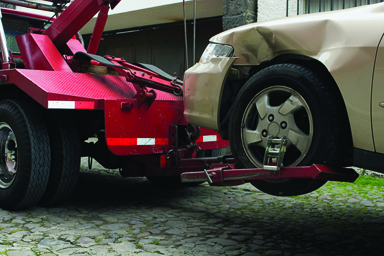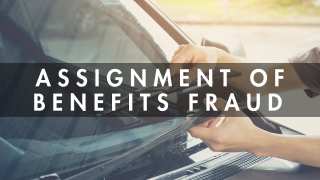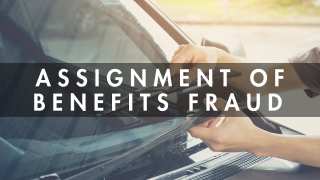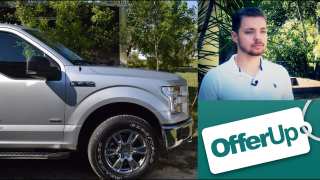Avoid Auto Repair Scams
Avoid Collision Towing and Repair Scams
Unscrupulous and dishonest collision repair operators are key contributors to the nation’s insurance fraud problems. There are many types of collision repair fraud scams, ranging from airbag fraud to chop shops that dismantle and resell stolen vehicle parts, to shops that inflate vehicle damage estimates.
Common Scams to Watch Out For
Airbag Fraud
Dishonest repair shops frequently use stolen, previously deployed and salvaged airbags to replace a customer’s deployed airbag. Shops pay very little for these airbags and then bill your insurance company for the retail value of a new one. Some unscrupulous shops will even attach a deployed airbag to the steering wheel of a vehicle that contains a non-deployed airbag, creating the illusion of a deployment and thereby increasing the insurance claim amount. Not only are you not getting the new airbag you deserve, but you may well receive an airbag that won’t work when you need it most.
Bandit Tow Trucks
Be cautious if a tow truck driver you did not call arrives at the scene of an accident and tries to persuade you to allow your vehicle to be transported to a repair facility. These tow truck drivers often charge exorbitant fees and bring vehicles to dishonest repair facilities. Once a vehicle is at a facility, it can easily be held hostage with demands for an insurance company payment. The tow truck driver may also attempt to refer you to unscrupulous medical providers and attorneys who specialize in insurance fraud scams.
“Burying” the Deductible
Unscrupulous collision repair shops may offer to “bury the deductible” or hide the cost within the estimate for repairs so the insurance company ends up paying the deductible. One common way to bury the deductible cost occurs when a shop bills the insurer for original equipment manufacturer parts but instead installs less expensive parts or repaired, damaged or junk parts.
Chop Shops
Some dishonest repair shops serve as a front for individuals and/or crime rings that disassemble stolen vehicles and sell them for parts to disreputable repair shops.
Glass Fraud
Be extremely cautious if someone solicits you offering to repair your windshield or other glass in your vehicle. A random “inspection” visit from a glass repair “technician” could be the first step in a fraud scam.
Inflated Damage Estimates
Some dishonest collision repair shops will estimate charges for work that intentionally will never be completed, or for parts that will never be installed. Shops may also inflate the estimate by exaggerating the amount of damage to the vehicle.
Kickbacks
Unscrupulous collision repair shop owners may offer bribes to various individuals in exchange for referring claimants.
Tips to Protect Yourself and Your Vehicle
For collision repairs:
- Use reputable collision repair shops that employ ASE-certified (Automotive Service Excellence) body technicians.
- Get a shop recommendation from your insurance company, a family member or friend.
- Select a facility that is clean and orderly, with updated equipment.
- Choose a shop that uses a written damage report instead of a written estimate of cost/price of repair. A damage report is a “blueprint” for your repairs. Damage reports also contain more details about the repairs than written estimates.
- Ask for a written warranty in installed collision repair parts and paint work.
For air bag theft or replacement:
Review NICB’s "Tips on Air Bag Theft and Fraud: Deflating a Growing Crime Trend" to protect yourself when you need an air bag replacement.
For glass repairs:
Review NICB’s "Vehicle Glass Fraud brochure" before signing anything or agreeing to have any work done by a vendor.
Download Auto Repair Scam Resources
You can find more information in NICB’s "Accident and Fraud Prevention Checklist and Towing Information" document (English only); NICB's "Tips on Air Bag Theft and Fraud" brochure (English only); and NICB's "Vehicle Glass Fraud" brochure (English only).
These are in PDF format. If you don't have it already installed, download Adobe Reader.



